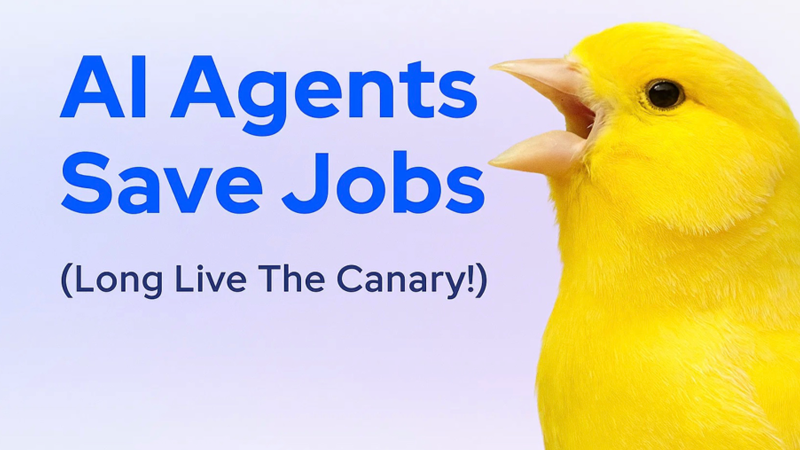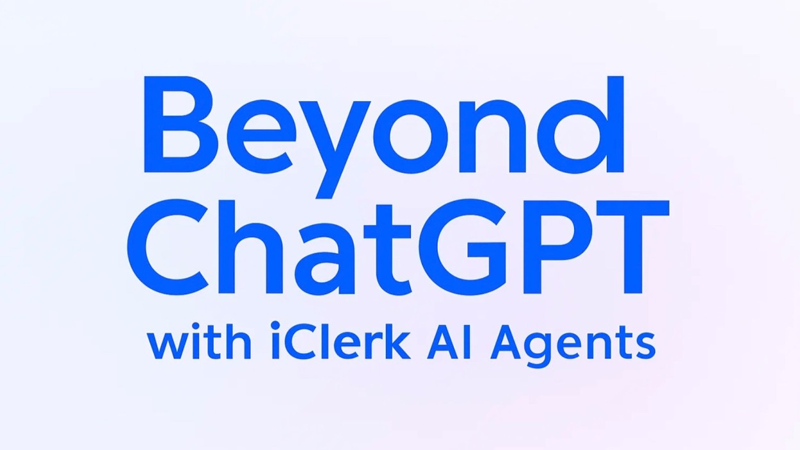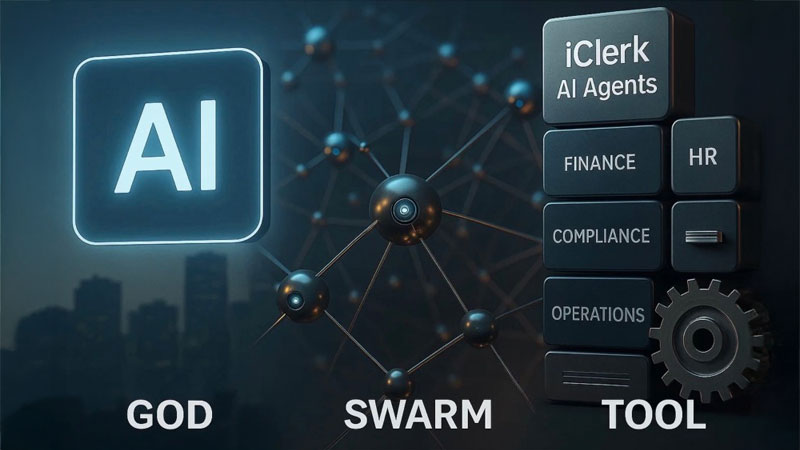
AI Agents Save Jobs

Beyond ChatGPT


The discourse on AI adoption in the enterprise is often framed in extremes, from the “God” narrative, where there is a single, all-powerful system, a copilot that is there to answer questions, to the “Swarm” narrative, where a network of autonomous agents self-orchestrate to achieve goals.
Both narratives are useful for promotion and clicks, but less relevant for actual enterprise adoption. AI lacks four critical capabilities: goal setting, reproduction, embodiment, and autonomous operations. These limitations mean AI cannot function end-to-end on its own. Consider AI as a highly capable intermediary; Balaji Srinivasan putting it best: “AI doesn’t operate end-to-end, it operates middle-to-middle.”
This framing is critical to understanding AI Agent systems. Rather than a single, omnipotent platform or an “autonomous”, coordinating swarm, iClerk AI Agents provide the precision tools required to leverage AI today, and into the future, with a vendor-agnostic, compound AI system that allows you to adapt to multiple models chosen by cost, performance, jurisdiction, proprietary reasoning for orchestration, integration with private enterprise data, and traceable execution of operational workflows.
AI’s real power comes not from trying to be a God or to swarm, but from having the right tools with the right controls, the scale, and the accuracy required to automate the mundane but critical business workflows that operate your business.


